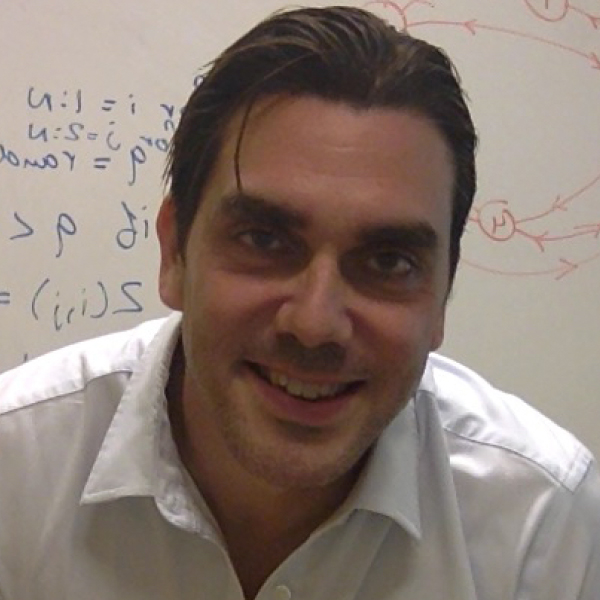Dr. Gabriel A. Silva is a Professor in the Department of Bioengineering and the Department of Neurosciences at the University of California San Diego. He is a Jacobs Faculty Endowed Scholar in the Jacobs School of Engineering, and the founding Director of the Center for Engineered Natural Intelligence. He is also an affiliated faculty member in the Department of NanoEngineering, and a faculty member in the BioCircuits Institute, the Neurosciences Graduate Program, Computational Neurobiology Program, Institute for Neural Computation, and Contextual Robotics Institute.
He has previously served as Vice Chair of the Department of Bioengineering, Co-Director of the Retina Engineering Center in the Institute for Engineering in Medicine (IEM), and as an Associate Professor held the Jacobs Faculty Fellows Endowed Chair in Bioengineering. Prof. Silva received an Hon.B.Sc. in human physiology and a B.Sc. in biophysics from the University of Toronto, Canada in 1996, followed by an M.Sc. in neuroscience also from the University of Toronto in 1997. He did his Ph.D. in bioengineering and neurophysiology at the University of Illinois at Chicago, graduating in 2001, followed by a postdoctoral fellowship in the Institute for BioNanotechnology and Medicine (IBNAM) and the Department of Neurology at Northwestern University in Chicago from 2001 to 2003. He joined the faculty at the University of California, San Diego in 2003.
Prof. Silva has received numerous awards and recognitions for his research and teaching, including the IEEE/EMBS Excellence in Neural Engineering award, Wallace Coulter Foundation Early Career award, Faculty of the Year award for undergraduate education from the Tau Beta Pi Engineering Honors Society, and the YC Fung Young Investigator Award and Medal. He is also an elected Fellow of the American Institute for Medical and Biological Engineering (AIMBE).
Dr. Silva is a co-inventor on a number of issued or pending patents, is a founder or co-founder of several start up companies, has consulted for 11 other companies and is or has served on the Executive and Scientific Advisory Boards of four of them. His work is focused at the intersection of mathematics, physics, neural engineering and neuroscience. His research aims to understand how the biological brain learns, represents, and processes complex information, what happens when there is a breakdown in neurological disorders, and how we can use what we learn to develop fundamentally novel neural derived models and algorithms for next generation machine learning and artificial intelligence, beyond the current state of the art.


